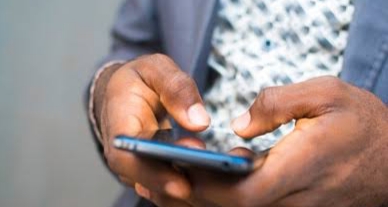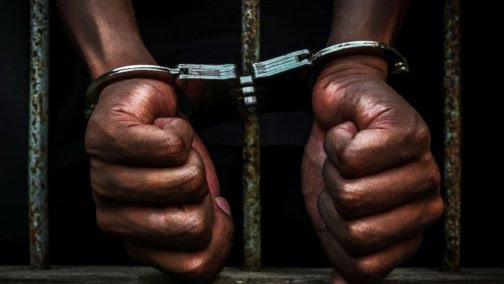Kidnapping, the action of abducting someone and holding them against their will, has been on the ascendancy in Nigeria.
In the four months of 2022, about 1,827 kidnap cases were reported, according to the Nigeria Security Tracker. While this is a 14.10 per cent decrease from the 2,127 recorded in 2021, it is a 962.21 per cent increase from the 172 kidnaped cases reported in the corresponding period of 2017.
According to the NST, 293 kidnapped cases were reported in 2018, 532 in 2019, and 780 in 2020. According to experts, this followed the rising spate of insecurity in the nation and needed a holistic approach if it is to be resolved.
According to them, telecommunication held tremendous potential to help security operatives in their search for kidnapped victims. They said almost everyone had telephones, and the situation could be leveraged to locate victims of kidnappings.
The Nigerian Communications Commission stated that there were 306.31 million connected GSM lines in March 2022. Each of these lines are connected to owners, and experts have said those phones could serve as trackers, albeit with privacy risks.
The NST data show that 15 kidnapped cases were recorded daily in the first 120 days of 2022. Almost every day, someone is tweeting about how they escaped a kidnapping attempt or the picture of a kidnapped victim.
Numerous reports have said there is a kidnapping endemic in Nigeria. A report by SBM Intelligence said that insecurity in the nation had risen sharply in the last few years. According to the report, at least $18.34m was paid to kidnappers as ransom from June 2011 to March 2020.
It stated that only $11m was paid between January 2016 and March 2020, indicating how lucrative kidnapping has become. Kidnapping for ransom is on the rise in all states of the nation
According to a security expert, Jackson Ojo, technology could help to track kidnapped victims, but it had security concerns.
He said, “It is very possible technologically, but you cannot go ahead and begin to do it because you need the approval of the network providers. And the network providers will not listen to you until the security agencies apply to the court. Without the court, this is just a case of privacy infringement.”
According to him, security operatives in the nation needed a court order to gain access to private data. He added that they would not get this order if someone related to the victim did not give them.
He stated, “But the problem with the procedure is that someone must first approach the court, someone must also give security agencies the power to approach the court. That is if there is no one giving instruction to the security operative, who will approach the court.
“What we are facing in Nigeria is a complicated system where there is no synergy between the individuals, Nigerians, security operatives, and the judiciary. There is no synergy. After tracking these criminals and taking them to court, there is still a chance that the court will let them go.”
Ojo said the NCC was not doing enough regarding helping security agencies to track kidnapped victims. According to him, there had to be synergy between the commission, security agencies, and the court.
He added, “People that kidnap others send videos over the Internet. These things are not possible without a network. Why can’t the commission make moves to get this metadata? It wasn’t magic that America did when only a single person was kidnapped in Borno.
“They showed up within three days, tracked the victim, and took them back home. They leveraged on telecom technology, same as we have here. But how are we using our telecoms here? It is very possible to use people’s phone numbers to track them. We need to simplify this process. And one of the major ways to achieve this is to give security agencies express permission.”
Recently, the Minister of Communications and Digital Economy, Isa Pantami, said security agencies had got approval from the President, Major General Muhammadu Buhari, to access the database of the National Identity Management Commission in the course of carrying out their duties.
He said, “Some of the security institutions, based on the cybercrime law, are allowed to gain access to the database without coming to us because the database allows for lawful intercept. That lawful intercept was allowed in order to support our security agencies.”
He did not disclose if the security operatives had access to the International Mobile Equipment Identity number of subscribers which was needed to track phones.
Although, recently, the NCC, which is under the supervision of the minister, announced plans to create a database for IMEIs in the nation in order to help with the tracking of phones when they get lost.
According to the Founder, e86 Limited, OluGbenga Odeyemi, security agencies should not get express access to the phone data of individuals without checks.
He said, “The same tool used for security can be compromised and will lead to bigger issues. This is especially a bad idea considering our political space. It is an invasion of privacy.
“To effectively track a phone, you will need to go beyond tracking the last network broadcast. The level of access required will definitely compromise privacy. Also, at what point do you begin to track?
“Before the kidnapping or after? Most victims are not even allowed to use their phones, most phones are taken away and destroyed.”
Odeyemi added, “What we have heard repeatedly is that security operatives are aware of the locations of these criminals. We have heard that security operatives are able to listen to phone conversations and monitor other transactions originating from their mobile devices.
“I do not think this has to do with the lack of technology. These criminals receive shipments of food, weapons, and other supplies. They receive money and transport money to their sponsors; it cannot be so difficult to do a trace on these activities.
“Even if the most sophisticated tools are deployed, getting evidence is one thing, making use of the evidence to seek justice is another thing. I think the latter is the problem here. Justice and fairness are what is missing everywhere you look in the country.”
He stated that while he agreed that more technology would help security agencies, he would not agree that the reasons why criminals had not been apprehended or why victims had not gained freedom was because of security operatives’ inability to track phones.
According to him, there was a need to focus on the general safety of cities, towns, and roads. He stated that if overall security was improved, cases of kidnapping would reduce.
He added, “When the Nigerian police or FRSC want to arrest an offending driver, they either block the vehicle with their own bodies or chase with their vehicle. There is practically no way to track such a driver once the driver has left the scene.
“A country that has no comprehensive and central database for registered vehicles within the country has its work cut out. The best way to solve a problem is to attack the root cause and not only treat the symptoms. Kidnapping is a symptom of the security system we have not been able to build.”
He said while it was now possible for devices to communicate over the Internet as a result of the Internet of Things, there was a need to address more nuanced security issues in society.
He added that while providing the appropriate technology, training, and access was necessary, there are core security issues that needed to be addressed. CONTINUE READING…




